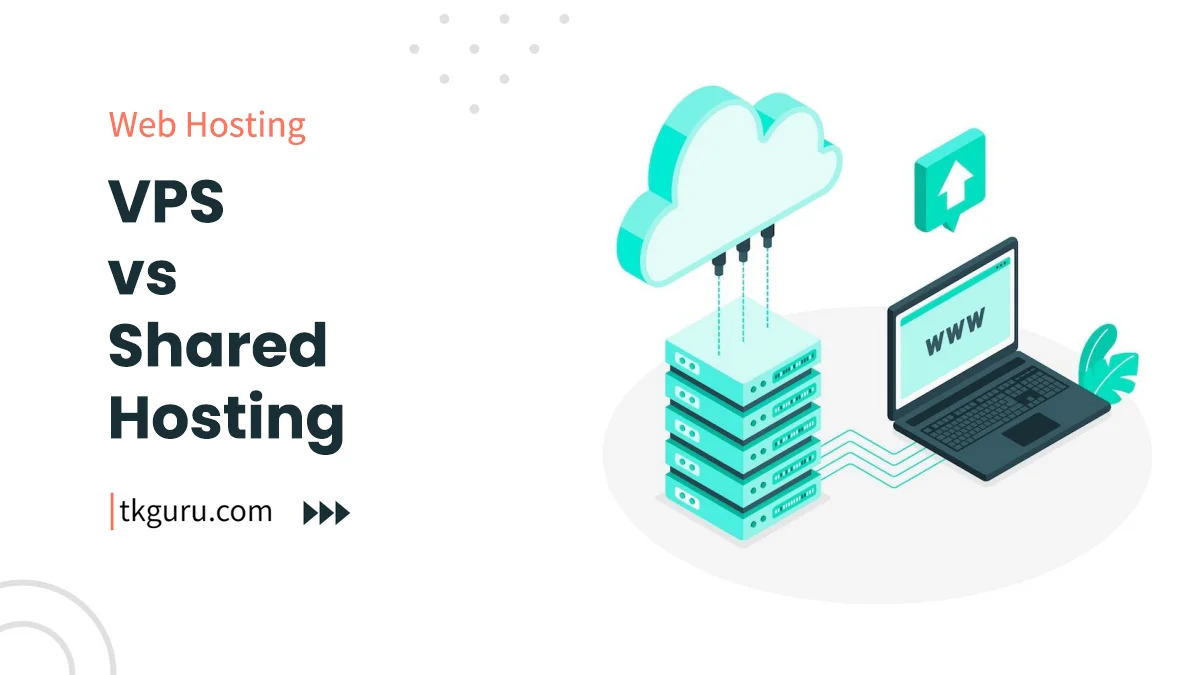Advertisements
Ratings

VPS Hosting vs Shared Hosting – Selecting the right hosting solution is a pivotal decision that profoundly influences your website’s performance, user experience, and overall success.
Among the various hosting options available, VPS Hosting and Shared Hosting stand out as popular choices.
In this comprehensive guide, we’ll delve into the differences between these two hosting types, offering insights to help you make an informed choice that aligns perfectly with your website’s goals and requirements.
Contents
Shared Hosting is an entry-level hosting solution where multiple websites share resources on a single physical server. This economical option is ideal for beginners and small websites.
| Features | Shared Hosting |
|---|---|
| Cost-Effectiveness | Affordable pricing suitable for individuals and small businesses. |
| Ease of Setup | Quick and easy setup with minimal technical knowledge required. |
| Limited Control | Limited administrative control due to shared environment. |
| Resource Sharing | Websites compete for resources, potentially leading to performance bottlenecks. |
While Shared Hosting is budget-friendly and straightforward, it has limitations in terms of performance and control due to resource sharing among multiple websites.
2. Understanding VPS Hosting
VPS Hosting, or Virtual Private Server Hosting, offers a balance between shared hosting and dedicated servers. It provides dedicated virtualized resources within a shared environment.
| Features | VPS Hosting |
|---|---|
| Resource Isolation | Dedicated resources ensure consistent performance for your website. |
| Root Access | Full root access grants control over server configurations and software installations. |
| Scalability | Scalable resources to accommodate growing website traffic and demands. |
| Cost-Effectiveness | More cost-effective than dedicated hosting, offering better performance. |
VPS Hosting offers improved performance and control compared to Shared Hosting, making it a popular choice for websites with moderate to high resource demands.
3. Performance and Resource Allocation
- Shared resources can lead to slower website performance during peak traffic periods.
- The “bad neighbor effect” occurs when one website consumes excessive resources, affecting others on the same server.
3.2 VPS Hosting Performance:
- Dedicated resources ensure consistent performance regardless of neighboring websites.
- Websites experience minimal impact from others on the same virtual server.
4. Scalability and Resource Upgrades
- Limited ability to handle traffic spikes, potentially resulting in slow loading times.
- Resource upgrades are constrained by the shared server’s capacity.
4.2 VPS Hosting Scalability:
- Dedicated resources make it easier to handle traffic spikes without compromising performance.
- Resource upgrades involve increasing CPU, RAM, and storage allocations as needed.
5. Control and Customization
- Limited control over server configurations due to shared environment.
- Custom software installations and settings might not be possible.
5.2 VPS Hosting Control:
- Root access grants full control over server configurations, software installations, and settings.
- Customization options make VPS Hosting suitable for developers and businesses requiring specific software.
6. Security Considerations
- Security vulnerabilities due to shared environment.
- A breach in one website can potentially affect others on the same server.
6.2 VPS Hosting Security:
- Isolated environment reduces the impact of security breaches.
- Enhanced security measures can be implemented at the server level.
7. Cost Comparison
- Shared Hosting is the most cost-effective option, making it suitable for beginners and small websites.
- Users pay a fixed monthly fee for shared resources, often with introductory discounts.
7.2 VPS Hosting Costs:
- VPS Hosting offers better performance and control at a higher cost than Shared Hosting.
- Pricing varies based on resource allocations and additional features.
8. Use Cases and Target Audience
- Ideal for beginners, personal blogs, and small websites with low traffic.
- Budget-friendly option for projects with simple requirements.
8.2 VPS Hosting Use Cases:
- Suitable for growing websites, e-commerce platforms, and applications.
- Best for projects requiring performance, control, and scalability.
Conclusion
In the VPS Hosting vs Shared Hosting debate, there’s no universal answer. Each hosting type offers distinct benefits and considerations.
Final Thoughts
Choosing between VPS Hosting and Shared Hosting requires a careful evaluation of your website’s requirements, budget, and long-term goals.
By understanding the differences in performance, control, security, scalability, and cost, you can make an informed decision that aligns with your website’s objectives.
What is the difference between VPS hosting and shared hosting?
VPS hosting and shared hosting are two different types of hosting services:
- VPS Hosting: Offers virtual private servers with dedicated resources, providing better performance and customization.
- Shared Hosting: Shares server resources among multiple websites, making it a more affordable option but with potential performance limitations.
Which is more suitable for small websites, VPS hosting or shared hosting?
Shared hosting is often more suitable for small websites with low traffic and limited resource requirements. It's cost-effective and easier to manage.
Is VPS hosting more secure than shared hosting?
Yes, VPS hosting is generally more secure because your resources are isolated from other users.
Shared hosting's shared environment might expose your site to security risks from other websites.
How does performance differ between VPS hosting and shared hosting?
VPS hosting provides better performance due to dedicated resources.
Shared hosting's performance can be affected by other websites on the same server.
When should I consider upgrading from shared hosting to VPS hosting?
Consider upgrading to VPS hosting when:
- Your website's traffic grows and shared hosting can't handle it.
- You need more control over server settings and custom configurations.
- Performance issues arise due to resource limitations in shared hosting.
Choosing between VPS hosting and shared hosting depends on your website's needs, budget, and performance requirements.
Shared hosting is suitable for smaller websites with limited traffic, while VPS hosting offers more control, performance, and security for websites that require dedicated resources.
| Web Hosting | Website |
| WordPress | Google Adsense |
| SEO | Affiliate Marketing |
| Blogging | YouTube |
Recent Posts
- 5 Best WordPress Hosting Provider in Somalia 2023
- 5 Best WordPress Hosting Provider in Austria 2023
- 5 Best WordPress Hosting Provider in Luxembourg 2023
- 5 Best WordPress Hosting Provider in Switzerland 2023
Related Tags
vps vs shared hosting, vps hosting vs dedicated hosting, vps vs shared hosting speed, shared hosting vs vps reddit, shared hosting vs cloud hosting vs vps, shared vps hosting, best vps hosting, hostinger






